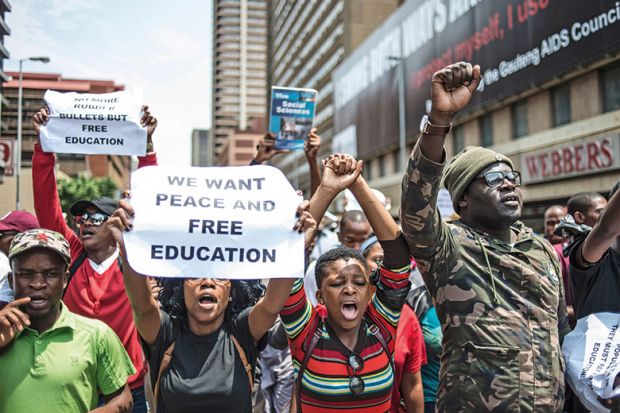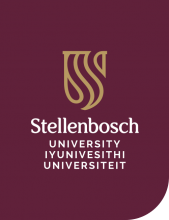Question marks remain over whether “free” higher education in South Africa will be successfully rolled out for the upcoming academic year, while there are still “deep concerns” about the long-term sustainability of the new funding system, the head of Universities South Africa has warned.
South Africa’s outgoing president Jacob Zuma announced in December that he would “extend fully subsidised free higher education to [those from] well over 90 per cent of South African households”.
Under the proposal, which will take effect for those starting university in February, any student from a household with a combined annual income of less than R350,000 (£20,700) will be eligible for free tuition and financial support.
But Ahmed Bawa, chief executive of Universities South Africa, said that it has been “quite a challenge to roll out the programme”, given the short notice.
“We really are anxious about this year’s registration period. We just didn’t have enough time to put in place a sufficiently well-thought-out process,” he told Times Higher Education.
The new system is “functional” at most universities but it is “still very early to say whether we will have a successful roll-out”, Professor Bawa added.
Universities also “have deep concerns about the sustainability” of the programme, he continued.
“We’d like to understand much better where the money for the new bursary system comes from. Every time we’ve proposed changes in the past we’ve always been told that there’s no money,” Professor Bawa said.
“There might be an argument made that this is really not your problem. Well, it is our problem, because if two or three years from now there’s a pulling back on the proposed programme, that would lead to chaos.”
During a visit to a high school, Mr Zuma said that he had ordered officials to “stop government programmes to get money for free education”, according to local reports. However, he did not specify exactly which government programmes he was referring to.
Finance minister Malusi Gigaba recently said that the estimated cost of the model had been finalised and details on the funding will be announced in February’s budget.
In January, three of South Africa’s leading universities – the University of the Witwatersrand, Stellenbosch University and the University of Johannesburg – said that they would not be able to accept any new applications for the 2018 academic year because of the late notice. This would mean that there would be no improvement in access for poorer students at those institutions until next year.
But Professor Bawa said that universities and the government have implemented a clearing-style system to ensure that prospective students who now want to apply to university in light of the new funding system are “not turned away”.
He added that there was “no question” that the model would improve university access to and retention of poorer students.
“We are all quite excited. If we can get it to work and if it’s a sustainable programme, it has the potential to be hugely effective in bringing into the higher education system 90 per cent of South African households,” he said. “Poor and working-class families won’t have to worry about where to find the money for their children to study at universities if they’ve been admitted to a university.”
Register to continue
Why register?
- Registration is free and only takes a moment
- Once registered, you can read 3 articles a month
- Sign up for our newsletter
Subscribe
Or subscribe for unlimited access to:
- Unlimited access to news, views, insights & reviews
- Digital editions
- Digital access to THE’s university and college rankings analysis
Already registered or a current subscriber? Login










